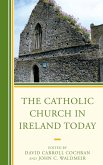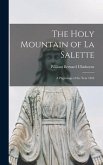All pilgrimages should be stopped.' This blunt assertion by Martin Luther, echoed unanimously by the sixteenth-century Protestant Reformers, is the pivot of Professor Davies's fascinating and original study. Why were pilgrimages condemned? To answer the question he gathers together material to illustrate the nature of pilgrimages and the motives behind them, extending from patristic times to the Middle Ages. Then he studies the effects of the condemnation on the flourishing pilgrimage trade. During the nineteenth century, the Holy Land again attracted visitors, even among Protestants; here is another change which needs to be explained. Pilgrimages may have been resurrected in our day, but there has been little examination in depth of the criticisms previously levelled against them among Protestants. A substantial chapter attempts to fill this gap, at the same time supplying a modern theology of pilgrimage. The book ends with a review of the devotional aspects of modern pilgrimages, and with suggestions about possible services, use of the Bible, meditations and soon. J. G. Davies was Professor and former Head of the Department of Theology in the University of Birmingham.
Hinweis: Dieser Artikel kann nur an eine deutsche Lieferadresse ausgeliefert werden.
Hinweis: Dieser Artikel kann nur an eine deutsche Lieferadresse ausgeliefert werden.








